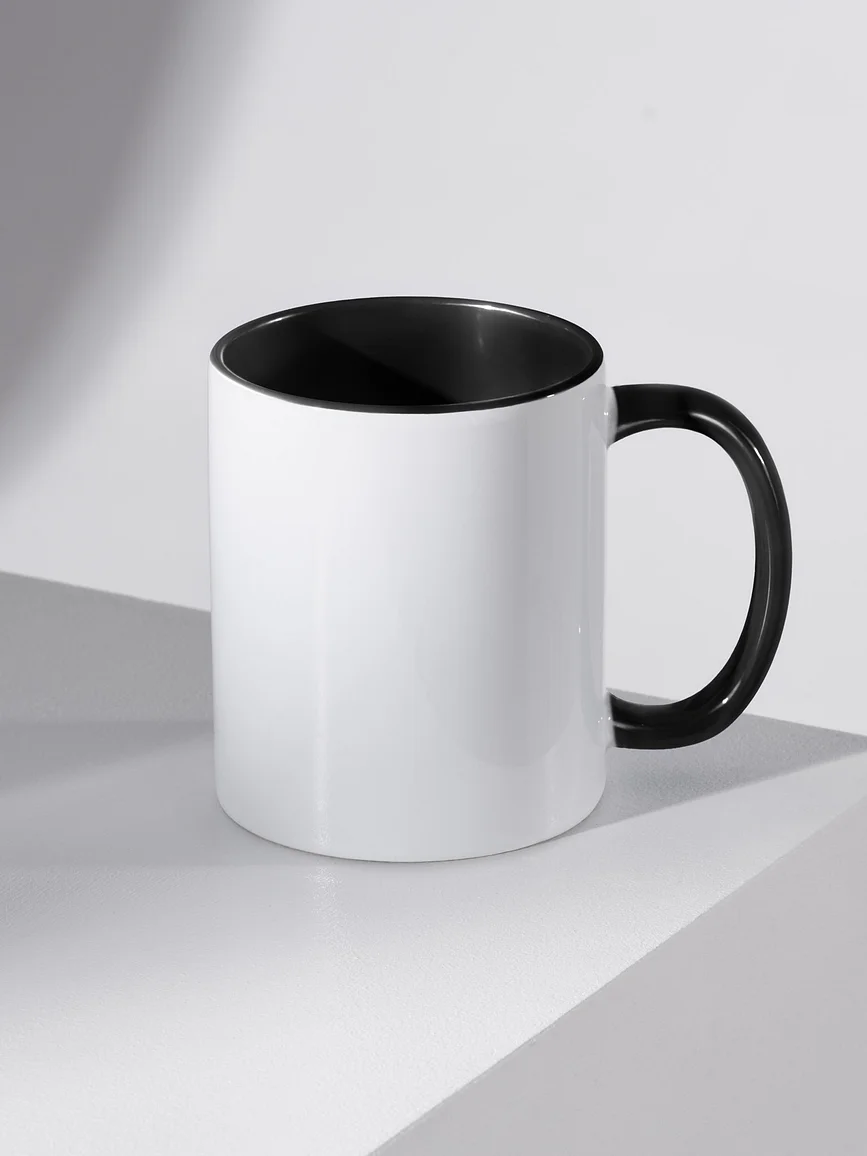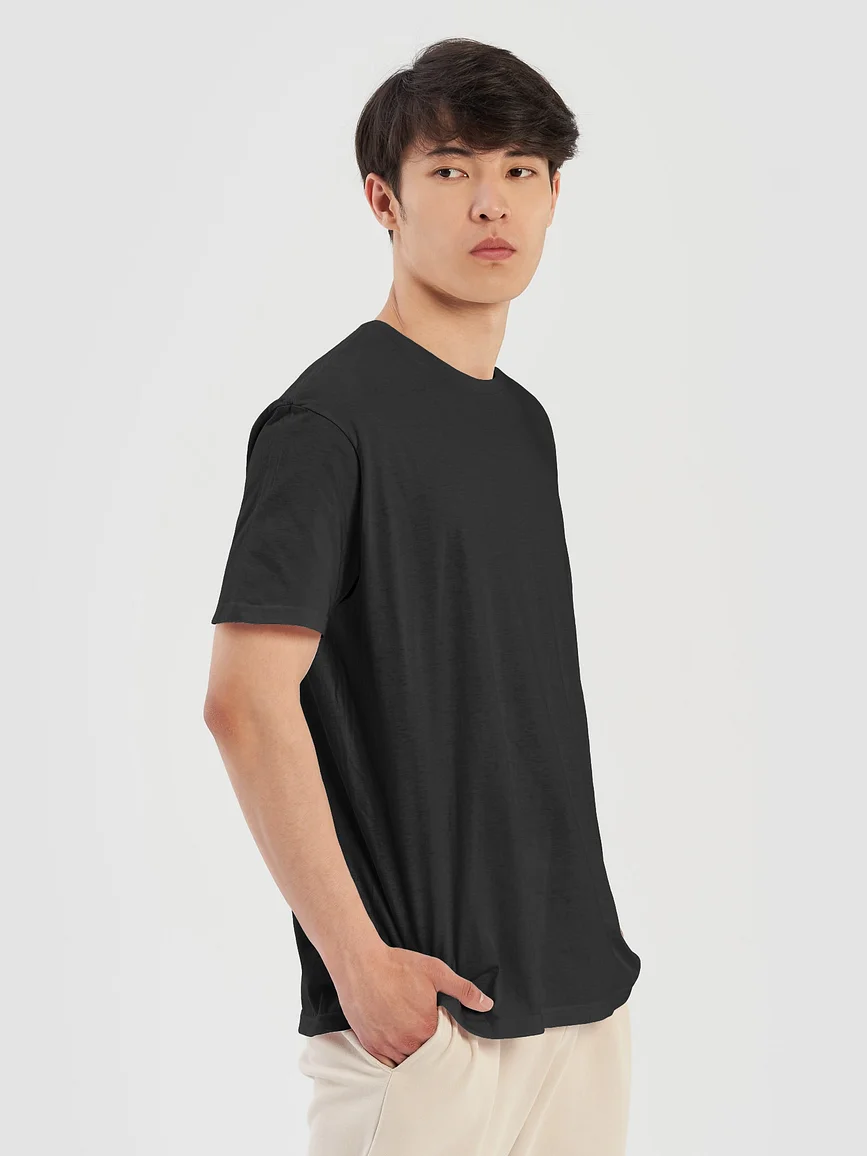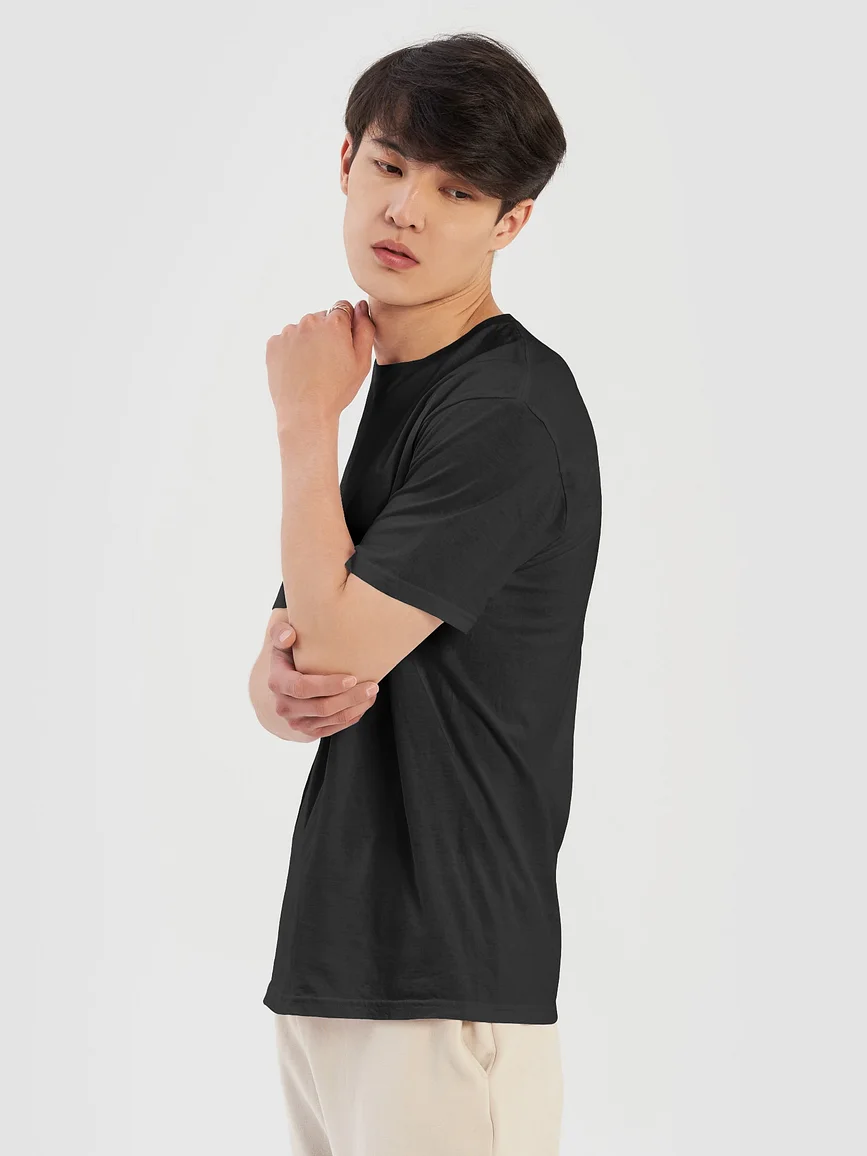The Profitability of Print on Demand: Insights & Strategies

Are you a new creator eager to grow your brand through merchandising?
As the ecommerce industry continues to skyrocket, print on demand (POD) has remained an effective tool for content creators to easily monetize their designs, build their brand, and reach a global audience without the upfront costs or risks associated with traditional inventory-based businesses.
This innovative business model, where products are made only when a customer orders, offers an easy entry point for creators looking to enter the world of ecommerce without the hassle of inventory management.
But how can print on demand actually help you profit? In this article, we’ll explore the ins and outs of the POD market, examining its profitability, potential challenges, and the strategies you need to succeed.
Understanding The Print On Demand Business Model
Before exploring whether print on demand (POD) is a profitable venture for creators, it’s crucial to understand how the business model works. POD has become a key player in the ecommerce industry, offering creators and entrepreneurs a way to launch an online store without the hefty upfront costs or the hassle of inventory management. By utilizing platforms like Fourthwall, Printful, and Printify, creators can tap into niche markets by offering customized products that resonate with specific audiences.
In this model, creators upload their designs to a platform that syncs with their online store. When a customer makes a purchase, the POD company—whether it’s Fourthwall, Printful, or another provider—handles the printing and shipping directly to the customer. This approach significantly reduces financial risk, as there’s no need to invest in large quantities of stock. Creators can instead focus on crafting unique designs and marketing their products while the POD companies manage the logistics.
The print on demand business model offers creators a chance to generate passive income. With effective marketing strategies and a deep understanding of their target market, creators can consistently earn revenue as long as their designs continue to attract interest.
Is Print On Demand Profitable?

While the allure of print on demand (POD) lies within its low startup costs and scalability, its profitability can vary widely. Several factors can influence a POD business's profit margins, including product type, pricing strategy, market competition, and overall economic conditions. For example, custom apparel and accessories, which have a higher perceived value, often yield better profit margins than commodity items like candles, drinkware, or cookware.
A carefully selected niche market with less competition can significantly enhance the profitability of your online business. However, it's crucial to understand that the costs associated with dropshipping, marketing, advertising, and product development can impact earnings if not managed effectively.
Successful POD entrepreneurs have reported profit margins ranging from 20% to 50%, depending on various factors such as niche and competition. While the potential to make money is certainly there, it's important to approach print on demand with realistic expectations and a comprehensive understanding of the market dynamics.
Example: Phil DeFranco
A notable example of a content creator successfully venturing into the print on demand (POD) business is Philip DeFranco, a well-known YouTube personality who launched his own clothing line, Beautiful Bastard. Leveraging his massive online following and strong personal brand, DeFranco identified a profitable niche in custom apparel that resonated deeply with his audience.
A key element of DeFranco's success in the POD business was his partnership with Fourthwall, an ecommerce platform specifically designed for creators to build and scale their own branded stores. Fourthwall provided DeFranco with the tools to create and sell custom products directly from his online store, allowing him to focus on brand building and product quality without the complexities of traditional retail operations.
With Fourthwall, DeFranco was able to offer a range of custom apparel options, ensuring that his products maintained high-profit margins. The platform's seamless integration and user-friendly design enabled him to manage his store efficiently, ensuring that his business remained both scalable and profitable.

Is Print on Demand Saturated?
The Print On Demand (POD) market has seen substantial growth, raising concerns about market saturation. While competition has undeniably increased, success still hinges on niche specialization. Entrepreneurs who identify underserved markets and offer unique, high-quality products can carve out a profitable niche despite the crowded landscape.
Key factors such as product quality, design aesthetics, and customer experience are crucial in setting a POD business apart from competitors. Additionally, staying current with emerging trends and consumer preferences is vital for maintaining a competitive edge in this evolving market.
Example: Harry Mack
An excellent example of niche specialization in the POD market is Harry Mack, a freestyle rapper who successfully relaunched his online store, Harry Mack Official, through Fourthwall. By focusing on products that resonate with his fan base, such as custom apparel and accessories featuring his unique branding and podcast 'Flow State,' Mack has created a strong brand identity that sets his store apart from generic POD offerings.
Mack's success demonstrates how a well-defined niche and a deep connection with your audience can help you stand out, even in a saturated market. His ability to offer products that align with his music and personal brand has allowed him to build a loyal customer base, proving that there's still plenty of room for growth in the POD space if you approach it strategically.

Can Print on Demand Set You Free Financially?
The dream of achieving financial independence through print on demand is enticing, but it requires dedication, strategic planning, and a realistic outlook. While some individuals have successfully turned POD businesses into substantial income streams, it's essential to understand the time and effort involved.
Building a profitable POD business often involves a learning curve, requiring experimentation with different product lines, marketing channels, and pricing strategies to optimize results. Consistent effort in building a strong brand identity, providing exceptional customer service, and staying ahead of market trends is crucial for long-term success.
While POD can be a lucrative venture, it's important to consider it as part of a diversified financial portfolio. Diversifying income sources helps mitigate risks and ensures financial stability over time.
Example: Charlotte Dobre
A prime example of turning passion into a full-time niche is Charlotte Dobre, a content creator who successfully transitioned her online presence into a thriving brand. Starting as a YouTuber focused on reaction videos and commentary, Charlotte built a loyal fan base by consistently delivering entertaining and relatable content.
Recognizing the potential of her growing audience, Charlotte expanded into the POD space by launching an online store and merchandise line that resonated with her community. Her products, often featuring catchphrases and themes from her videos, quickly became popular among her fans. By leveraging her existing platform and engaging with her audience, Charlotte was able to create a profitable niche within the POD market.

Examples of How Print on Demand Can Help You Make a Profit
Low Startup Costs
One of the biggest advantages of the print on demand business model is its minimal financial barrier to entry. Unlike traditional retail models, where you need to invest heavily in purchasing and storing inventory, POD allows you to launch your store with little to no upfront costs.
With print on demand, you only pay for the production and shipping of each item after a sale. This means your initial investment is primarily limited to setting up your online store, designing your products, and marketing. This low-risk approach makes it accessible for creators and entrepreneurs of all levels, enabling them to test new ideas without significant financial commitment.
No Inventory Management
With print on demand, you completely avoid the hassles and costs of managing inventory. Since products are only made when a customer places an order, there’s no need to worry about overstocking or storing unsold items.
This saves on warehousing costs and eliminates the risk of being stuck with outdated or unsellable stock. By streamlining your operations and reducing overhead, you can focus more on creativity and marketing, confident that your inventory aligns perfectly with customer demand.
Scalability
Easily expand your product offerings without worrying about production limitations. Since there’s no need to pre-produce items, you can effortlessly introduce new designs, products, or variations without the constraints of traditional manufacturing.
Whether you want to test a niche market with a limited-edition design or rapidly scale up your offerings during peak seasons, POD allows you to grow your business at your own pace. This adaptability ensures that your business can quickly respond to trends and customer preferences while keeping production costs in check.
Global Reach
You can sell your products to customers worldwide without dealing with the complexities of international shipping. POD companies manage all aspects of fulfillment, including shipping to different countries, handling customs, and ensuring timely delivery.
This means you can focus on growing your brand and reaching new audiences, confident that your products will arrive at their destinations without any added logistical headaches. This global accessibility opens up vast opportunities for revenue growth, allowing you to connect with customers far beyond your local market.
Passive Income Potential
As your designs continue to resonate with customers, they can keep selling long after their initial launch, providing you with a steady income stream. This allows you to focus on creating new designs or exploring other projects, knowing that your existing products are still working for you in the background. With the right marketing strategies, your POD business can become a reliable source of passive income, growing steadily as your portfolio of designs expands.
10 Profitable Print On Demand Strategies for 2024
To maximize your chances of success in the POD market, consider implementing the following strategies:
1. Niche Selection and Market Research
Thorough market research is crucial for identifying a profitable niche with minimal competition, as it helps you pinpoint where demand meets opportunity.
You can uncover a niche with substantial potential by analyzing industry trends, evaluating target audiences, and understanding customer needs. Utilize tools such as Google Trends, social media analytics, and competitor research to gather valuable insights and forecast market shifts.
In this process, selecting a reputable print on demand supplier like Fourthwall or Printful is essential. A reliable partner ensures high-quality products, seamless integration with your online store, and dependable fulfillment, directly impacting customer satisfaction and your brand's credibility.
Fourthwall's robust platform and superior service can significantly enhance your ability to effectively capture and serve your chosen niche.
2. Product Diversification
Product diversification is a strategic approach in the demand market that can significantly boost your e-commerce business by attracting a wider customer base and increasing sales. By offering a range of products within your niche, you can tap into different customer preferences and needs.
For instance, if you specialize in digital prints, consider expanding your product line to include complementary items such as posters, canvases, and wall art.
This not only enhances the value proposition for your customers but also opens up opportunities for bundling and cross-promotions, creating a more comprehensive and appealing shopping experience.
Embracing diversification within your ecommerce business helps capture varying customer interests and can drive higher engagement and revenue.
3. Effective Pricing
Establishing pricing is crucial for balancing customer attraction and profitability in the ecommerce market.
To ensure your print on demand business remains competitive and profitable, you must carefully analyze your production costs, competitor pricing, and product perceived value. This process helps you determine the optimal price point that supports healthy profit margins.
Additionally, consider incorporating a tiered pricing strategy to enhance your profit margins by offering various pricing levels based on product customization or bulk purchasing.
By strategically setting prices, you can manage startup costs effectively while maximizing the revenue you generate as you sell your print on demand products. This approach attracts customers and ensures your business remains financially viable in the competitive market.
4. Leveraging Social Media
Social media platforms are invaluable tools for connecting with your target audience and driving traffic to your print on demand store. You can effectively reach and attract potential customers by creating engaging content, leveraging compelling visuals, and building a strong brand presence.
Each platform offers unique opportunities; experimenting with Instagram, TikTok, Pinterest, and others allows you to discover which one best resonates with your target demographic.
For example, Instagram’s visual-centric nature is ideal for showcasing your product designs, while TikTok’s short-form videos can creatively highlight product uses or behind-the-scenes content. Pinterest excels at driving traffic through inspirational pins and curated boards.
Ecommerce platforms like Fourthwall can help enhance your social media strategy by allowing seamless integration with several platforms, including YouTube, TikTok, Instagram, Twitch and Facebook.
These integrations enable you to showcase and sell products directly within the platforms, reaching audiences where they already engage. Tailoring your approach to each platform’s strengths while utilizing these advanced integration features can maximize your reach, enhance brand visibility, and ultimately boost sales for your POD business.
5. Building an Email List
Email marketing remains one of the most powerful channels for engaging your audience, fostering loyalty, and boosting conversions.
To expand your email list, use various marketing strategies such as offering incentives, implementing pop-ups on your website, and providing lead magnets like free guides or exclusive content.
Encourage sign-ups by offering valuable perks such as exclusive discounts, early access to new products, and personalized recommendations tailored to your customers’ interests.
By integrating these approaches, you can develop a robust email marketing campaign that keeps your audience engaged and drives repeat business.
6. Paid Advertising
Paid advertising can accelerate your business growth. Platforms such as Facebook, Google, and Instagram Ads provide robust targeting options, allowing you to reach your ideal customer demographics precisely.
To maximize the effectiveness of your campaigns, craft compelling ad copy that highlights your products' unique selling points and use high-quality visuals that capture attention and drive engagement.
Continuously track and analyze your campaign performance to identify what works best and optimize your ad spend accordingly. By leveraging these targeted advertising options, you can boost your print on demand business's visibility, attract more customers, and ultimately increase your profitability.
7. Collaborations and Partnerships
Partnering with influencers, bloggers, or complementary businesses can expand your reach and introduce your products to new audiences.
For example, collaborating with a popular lifestyle influencer who resonates with your brand values can result in authentic and engaging content that showcases your products in real-world scenarios.
Additionally, partnering with complementary businesses, such as a fashion brand collaborating with a custom accessories store, can create synergistic marketing campaigns that benefit both parties.
Such collaborations often involve sponsored posts, joint giveaways, or co-branded products, which can drive traffic to your store and enhance brand credibility. These strategic partnerships not only broaden your exposure but also build trust with new potential customers through endorsements and shared content.
8. Customer Service Excellence
Providing prompt and helpful responses to inquiries is key to addressing customer concerns and resolving issues efficiently.
For instance, offering multiple channels for customer support—such as email, live chat, and social media—ensures that customers can reach out through their preferred method, enhancing their overall experience.
Additionally, exceeding customer expectations by going above and beyond, such as offering personalized support or proactive follow-ups, can turn first-time buyers into repeat customers.
For example, a POD business might implement a 24/7 live chat feature to assist customers in real-time and ensure that all issues are addressed swiftly. By consistently delivering high-quality customer service, you build a positive reputation and encourage customer retention and positive word-of-mouth referrals.
9. Inventory Management
While print on demand eliminates the need for physical inventory, managing digital assets and product designs is crucial.
Effective inventory management involves organizing your product catalog digitally and ensuring seamless order fulfillment within your ecommerce platform. This includes maintaining up-to-date product designs, optimizing digital assets, and implementing a system to track product performance.
Analyze your sales data regularly to identify slow-moving items and make informed decisions to optimize your offerings. For instance, using analytics tools provided by POD companies can help you monitor which products are performing well and which may need adjustments.
By streamlining these processes, you can enhance operational efficiency, reduce costs, and provide a better customer experience, ultimately contributing to the success and scalability of your ecommerce business.
10. Continuous Optimization
By regularly analyzing your store's performance, you can identify areas for improvement and capitalize on opportunities for growth. Tracking key metrics such as conversion rates, customer acquisition costs, and average order value allows you to better understand what's driving your business.
For example, using analytics tools like Google Analytics, which can be integrated into your Fourthwall site, can provide valuable insights into customer behavior, product performance, and marketing effectiveness.
Experiment with different strategies such as A/B testing product pages, refining your marketing campaigns, or adjusting pricing models to see what resonates most with your audience. By making data-driven decisions, you can continuously refine your operations, enhance the customer experience, and ultimately increase profitability.
This proactive approach ensures that your ecommerce business remains competitive and adaptable in a constantly evolving market.
Boost Profits With Your Print On Demand Store By Utilizing Fourthwall
Ready to embark on your POD journey?
Fourthwall equips creators with everything they need to thrive in the competitive print on demand space. With a catalog of over 250 customizable products, ranging from apparel and accessories to home decor and tech gadgets, you can design and sell a wide variety of items that align with your brand and resonate with your audience.
Fourthwall also offers powerful analytic and marketing tools to help you grow your business. With detailed insights into customer behavior, sales performance, and product trends, you can make data-driven decisions to optimize your store and marketing strategies.
The platform’s robust social media integrations, including seamless connections with YouTube Product Shelf, TikTok Shop, and Twitch Gifting, allow you to market and sell directly through your favorite platforms, reaching your audience where they already engage.
Whether you're looking to expand your brand, generate passive income, or simply explore a new creative venture, Fourthwall provides the comprehensive tools and support to turn your print on demand dreams into a profitable reality. So sign up today and prepare to take your brand to the next level!
















